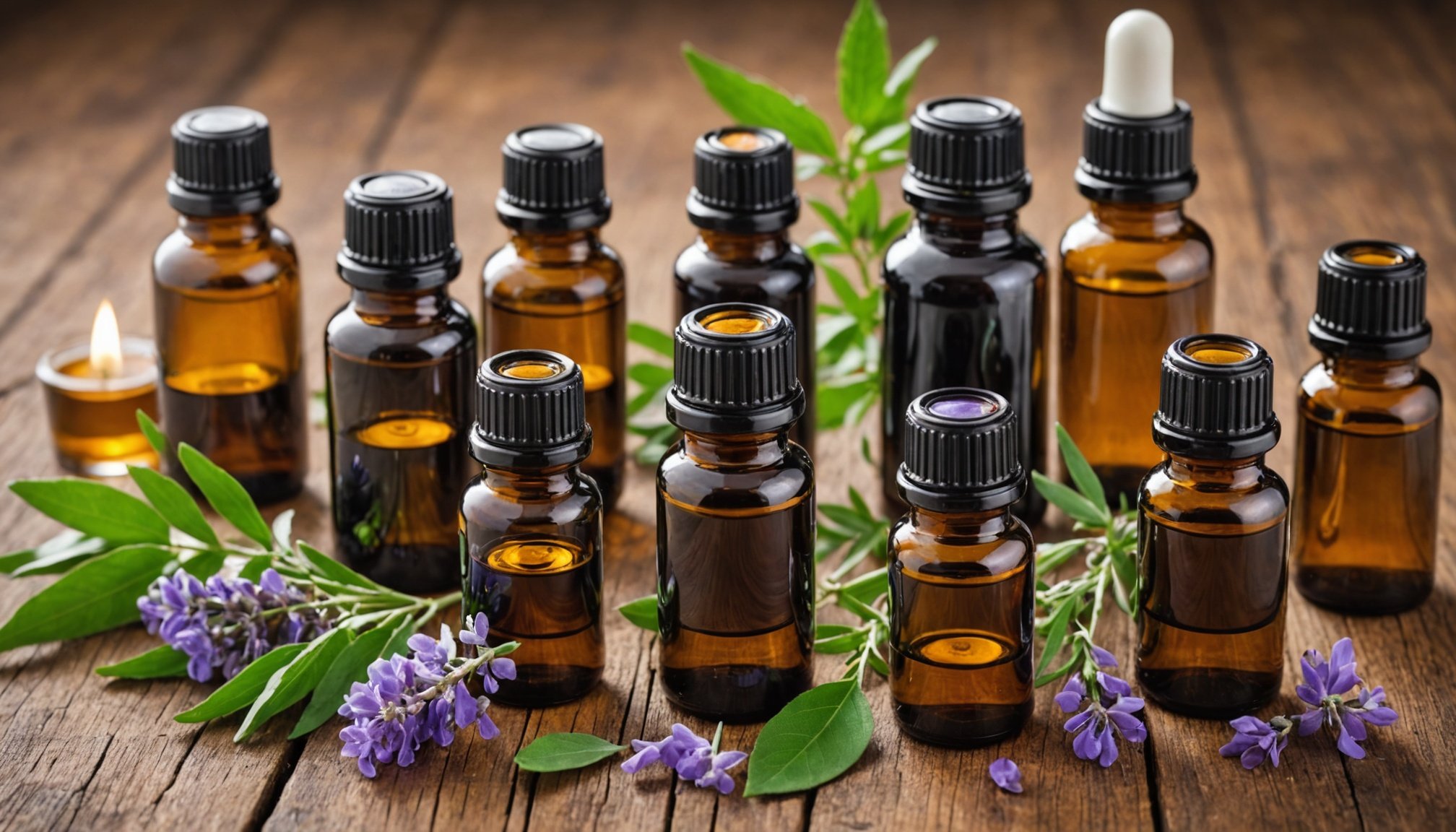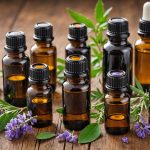Understanding Scar Formation and Skin Renewal
Scars form as part of the body’s natural healing process, following an injury to the skin. When the skin is damaged, the body produces collagen fibers to repair the area. However, in their rush to close the wound, these fibers can align in a haphazard manner, leading to visible scars. An understanding of scar healing involves recognizing that it is the culmination of overlapping phases: hemostasis, inflammation, proliferation, and remodeling.
Skin renewal is crucial for maintaining the health and appearance of the skin. This process of continuous skin regeneration helps in replacing dead or damaged cells with healthy ones, which can improve the appearance of scars over time. Effective skin renewal can be bolstered by healthy lifestyle practices, including a balanced diet rich in nutrients crucial for skin repair and maintaining hydration.
In the same genre : Essential core workouts for expecting mothers: preventing lower back pain effectively
Essential oils play a significant role in promoting enhanced scar healing. They can support skin renewal by offering antimicrobial, anti-inflammatory, and antioxidant properties. These oils penetrate deeply to promote cell regeneration and elasticity. This dual action—both preventing infection and aiding tissue repair—can significantly enhance the efficiency of the healing process, encouraging better scar outcomes.
Best Essential Oils for Scar Healing
Selecting the best essential oils for scars can significantly enhance the healing process by offering unique skin-repairing benefits. Different oils have unique properties that cater to various aspects of scar management.
Also to discover : Effective Strategies to Keep Your Black Jeans Bold and Bright After Every Wash
Lavender Oil
Lavender oil is renowned for its calming scent and exceptional healing properties. It offers anti-inflammatory benefits and promotes collagen synthesis, assisting in scar tissue formation, ideal for supporting scar healing. The soothing effect can also alleviate itching, often associated with scar maturation.
Tea Tree Oil
Tea tree oil stands out for its potent antimicrobial properties, making it beneficial in preventing infection during the scar healing phase. Its ability to reduce redness and swelling complements its function in promoting skin renewal. This oil ensures that scars heal with minimal complications due to its anti-inflammatory nature.
Frankincense Oil
Frankincense oil supports cell regeneration, encouraging healthy skin renewal around the scarred area. Its anti-inflammatory and astringent properties help in maintaining skin’s elasticity and tone during the scar maturation process. This makes it an excellent choice for long-term scar management.
Utilizing these oils can be a natural alternative to more conventional treatments, owing to their integration of emotional, psychological, and dermatological benefits.
Mechanisms of Action for Essential Oils
Understanding the mechanisms of essential oils can provide insight into how these natural remedies enhance scar healing. Essential oils penetrate the skin through the epidermis, reaching deeper layers where they can significantly influence the healing process. Their small molecular size allows for deep penetration, aiding in the delivery of active compounds directly to the site of injury.
One of the primary mechanisms of essential oils is their anti-inflammatory properties. These oils can reduce swelling and redness, promoting a conducive environment for scar healing. Inflammation is a natural response to injury, but excessive or prolonged inflammation can impede proper healing.
Moreover, essential oils are rich in antioxidants, which combat free radicals and prevent oxidative stress that can delay skin renewal. By maintaining healthy skin cells, antioxidants aid in more efficient scar healing.
Studies indicate that the use of essential oils in skincare can have observable benefits in scar repair. Research has shown improvements in skin texture and elasticity, illustrating the potential of these oils in facilitating skin regeneration.
Thus, a deeper understanding of the mechanisms of essential oils affirms their role in enhancing skin health and optimizing scar healing outcomes.
Application Methods for Essential Oils
The application of essential oils is pivotal in maximizing their benefits for scar healing. Selecting the appropriate method ensures both efficacy and safety in use.
Dilution and Carrier Oils
Diluting essential oils is crucial to prevent skin irritation. Using carrier oils, such as coconut, almond, or jojoba oil, provides a medium to disperse essential oils evenly over the skin. Proper dilution maintains the efficacy of the essential oil while minimizing potential adverse reactions. A typical recommendation is to use 3–5 drops of essential oil per teaspoon of carrier oil.
Massage Techniques
Massage techniques play an integral role in enhancing the absorption of essential oils. Gentle, circular motions aid in improving circulation and ensuring skin renewal is adequately supported. Consistent application via massage promotes deeper penetration of the active compounds into the skin.
Topical Treatments
For homemade topical treatments, you might consider creating a simple balm or lotion by incorporating essential oils. Always ensure that the essential oil concentration remains within a safe range. These DIY solutions allow for customisation of ingredients to suit specific skin needs, ensuring a targeted approach for scar care.
Benefits of Using Essential Oils for Scars
The benefits of essential oils for scars extend beyond mere physical healing, touching on emotional and psychological aspects. These natural remedies not only support the skin’s aesthetic renewal but also foster a sense of well-being. Enveloping yourself in calming scents can alleviate stress, contributing indirectly to improved skin health through reduced cortisol levels, which are known to affect skin condition.
The holistic nature of essential oils makes them a vital component of comprehensive skin care routines. Incorporating these oils allows for a personalized approach, aligning with individual skin needs and preferences. Unlike conventional scar treatments, essential oils offer a blend of therapeutic aromatherapy and skin healing, providing a dual approach to care.
From enhancing collagen production to promoting elasticity, essential oils stand out for their skin-repairing capabilities. Their wound-healing properties, paired with the ability to moisturize and soothe, make them an advantageous choice over synthetic options, which may offer limited benefits and increased risk of side effects.
In conclusion, while traditional treatments have their place, the myriad of benefits of essential oils makes them a natural, versatile, and effective tool in supporting scar management and skin regeneration. Offering both physical and holistic benefits, they remain an appealing option for those seeking to enhance their skin care regimen.
Potential Side Effects and Safety Concerns
When using essential oils for scar healing, understanding potential side effects is vital for safety. Reactions can vary based on individual skin sensitivities and the properties of specific oils.
Skin Sensitivities
Certain individuals may experience heightened skin sensitivities when using essential oils. This sensitivity can manifest as redness, itching, or a burning sensation. To minimize risks, always dilute essential oils with a carrier oil like coconut or jojoba oil before application. This not only reduces potential irritation but also allows for safer, prolonged use.
Allergic Reactions
Allergic reactions to essential oils, although rare, can include hives, a rash or difficulty breathing. It’s crucial to watch for these signs, particularly if you’re trying a new oil. Should any symptoms arise, discontinue use immediately and consult a healthcare professional if necessary.
Patch Testing Recommendations
Performing a patch test is a simple yet effective method to assess your skin’s reaction to a new essential oil. Apply a small amount of the diluted oil to a discreet area and wait 24-48 hours to observe any adverse reactions. This precautionary step can prevent widespread irritation, ensuring a safer incorporation of essential oils into your scar care routine.
User Testimonials and Case Studies
The essential oils testimonials surrounding scar healing offer fascinating insights into their effectiveness. Users have shared numerous real-life stories where these natural remedies have significantly improved scar appearance. For instance, one individual noted a remarkable reduction in scar visibility after consistent use of lavender oil, crediting its calming and regenerative properties.
Experts within traditional medicine have long supported these claims, often integrating essential oils into treatment regimens. Dermatologists highlight the importance of choosing high-quality oils and following recommended application methods to achieve optimal benefits. The community often praises certain essential oil blends, like the combination of frankincense and tea tree oil, for their synergistic effects on scars.
Feedback from users often emphasizes the holistic nature of these oils, noting emotional and psychological improvements alongside physical healing. Many appreciate the dual action of aiding skin repair and creating an overall sense of well-being. Successful cases underscore the potential of essential oils in scar healing, particularly when conventional strategies fall short.
This growing body of essential oils testimonials reinforces their role as a viable option in skin care routines, backed by both personal success stories and expert recommendations.
Expert Recommendations and Scientific Support
Dermatologist Insights
Expert advice on essential oils is invaluable for effective scar management. Dermatologists consistently recommend choosing quality oils and stress the importance of using them correctly. They advise selecting oils that match skin types and conditions to ensure proper efficacy and minimize adverse reactions. Techniques such as dilution and application methods are often emphasized to optimize results and prevent potential skin irritation.
Clinical Studies
The use of essential oils in medicine has garnered attention, with clinical studies underpinning their benefits. Research affirms their anti-inflammatory, antimicrobial, and antioxidant properties, contributing to enhanced scar healing. Studies have shown promising results, including improved skin texture and reduced scar visibility. This scientific support lends credibility, making essential oils a trusted choice for natural scar care routines.
Essential Oil Quality Control
Quality control is a significant aspect of choosing essential oils. Experts stress purchasing from reputable brands that guarantee purity and potency. High quality ensures that the oils retain their therapeutic properties, maximizing their potential to aid in scar treatment. Rigorous testing for purity further assists in gaining the full advantage of these oils, empowering users to incorporate them safely into their skincare regimen.











